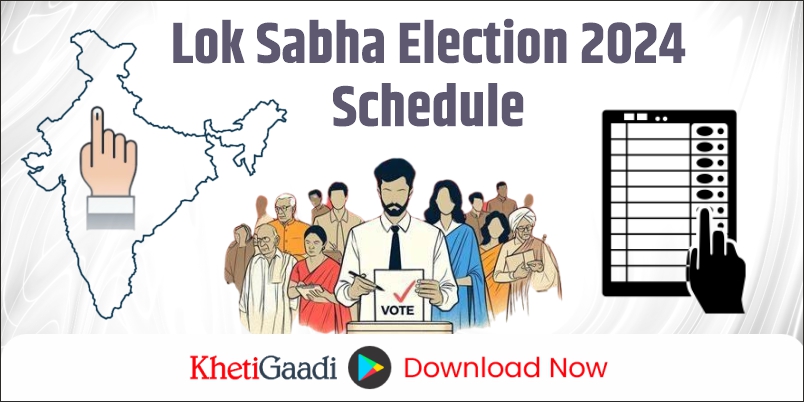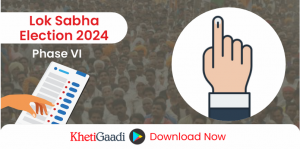India consists of a multiparty parliamentary system with a bicameral legislature. Rajiv Kumar, the Chief Election Commissioner, declared the elections for India’s lower house of Parliament, the Lok Sabha, which has 543 seats. The elections will be held in seven parts, beginning on April 19 and finishing on June 1. He further indicates that the Andhra Pradesh assembly polls would be held on March 13, Arunachal Pradesh and Sikkim on April 19, and Odisha on May 13.
In the previous year’s elections, the BJP won 303 seats, while the Congress got 52 seats. The Lok Sabha elections are critical for opposing parties that are hoping to compete with the BJP this year. This year’s Lok Sabha elections have a total of 543 seats. There are 412 seats reserved for General category applicants, 47 for ST candidates, and 84 for SC candidates. Read this page to learn about the Lok Sabha election timetable 2024, Phases 1-7, political parties participating in the polls, and forecasts.
Lok Sabha Elections 2024 Overview
The ECI has issued an election schedule for the Lok Sabha elections in 2024. By providing an election calendar, every citizen in the country may have an understanding of the voting process. According to the Lok Sabha elections calendar for 2024, they will begin on April 19 and finish on June 1. This year, elections will be held in seven parts.
The first phase of elections will take place on April 19, while the second and third phases of selection will take place on April 26. The fourth phase will take place on May 7, the fifth phase on May 20, the sixth phase on May 25, and the seventh phase will take place on June 1.
Schedule for the Lok Sabha elections in 2024
The 18th general elections will be conducted in seven parts. There are 102 seats up for election in the first round, with 89 constituencies holding votes in two parts. Polling will take place in 94, 96, 49, 57, and 57 seats in the following phases, in that order.
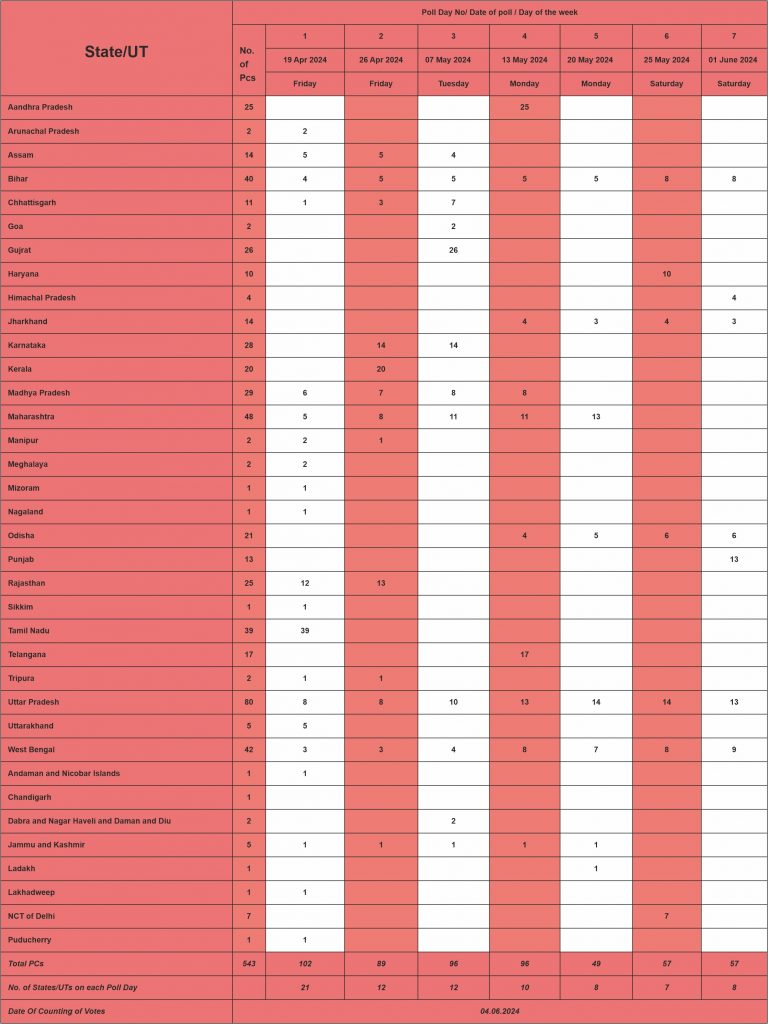
Phase 1
Nominations for the first phase will be submitted on March 27 and conducted on April 19. This phase of elections includes 21 states and union territories.
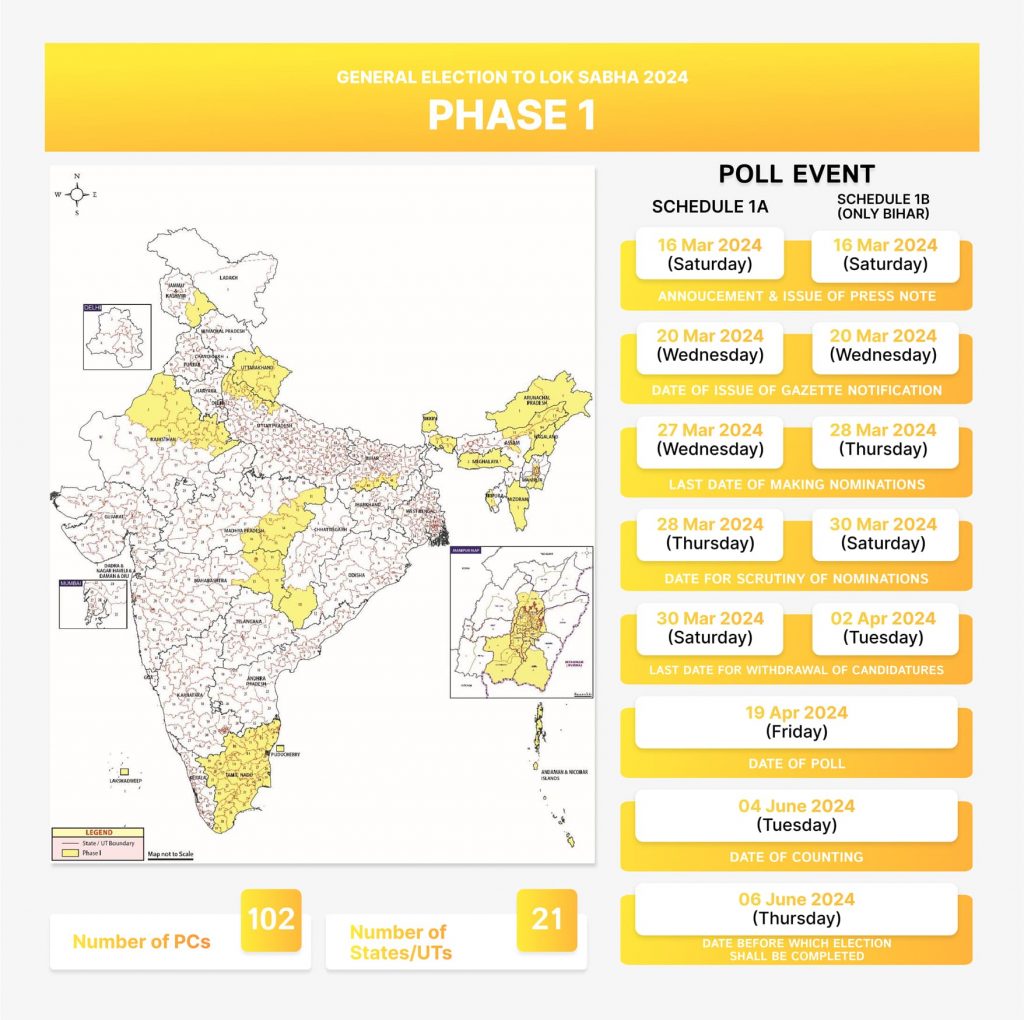
Phase 2
The second round of the elections will take place on April 26 due to the deadline for nominations on April 4. This phase of the 2024 Lok Sabha elections includes 12 states and union territories.
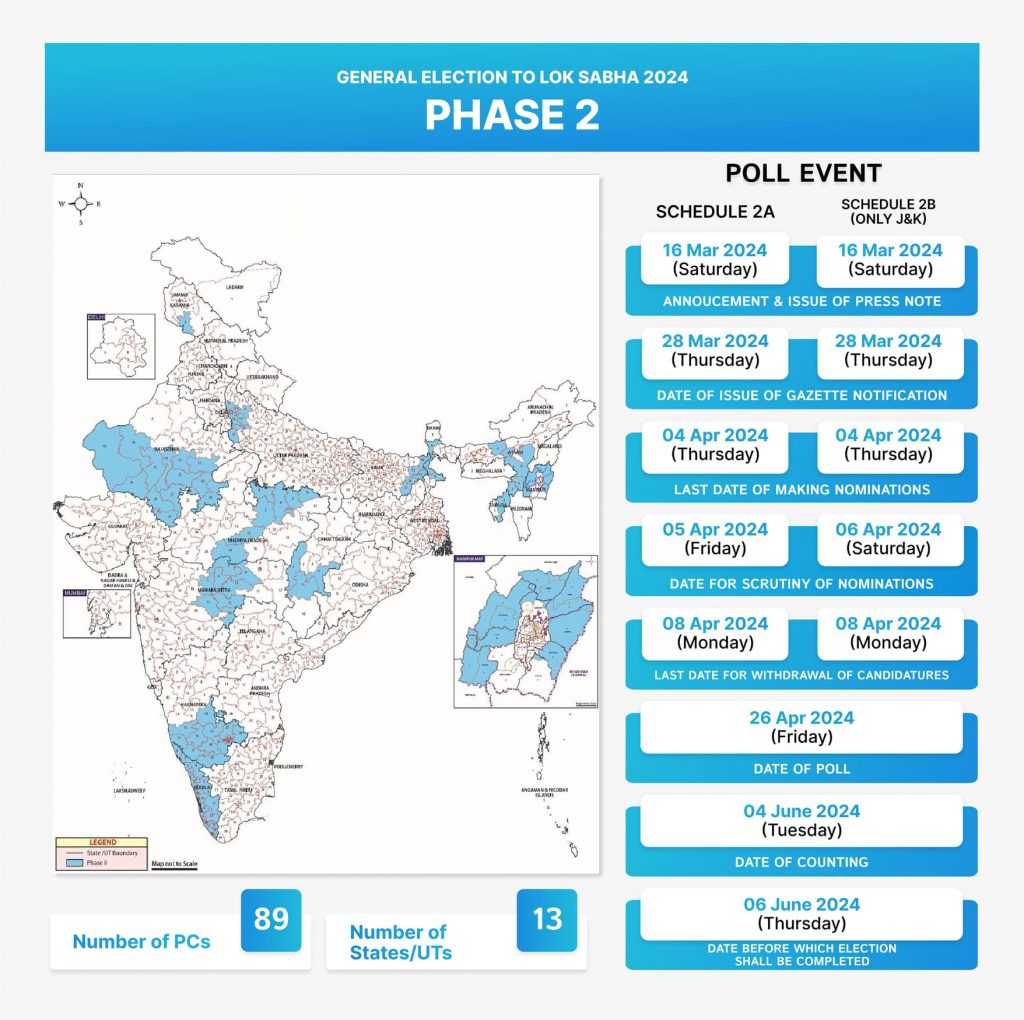
Phase 3
The third phase of elections will take place on April 20. The nominations for this phase will be held on May 7. 12 states and union territories participate in nominations.
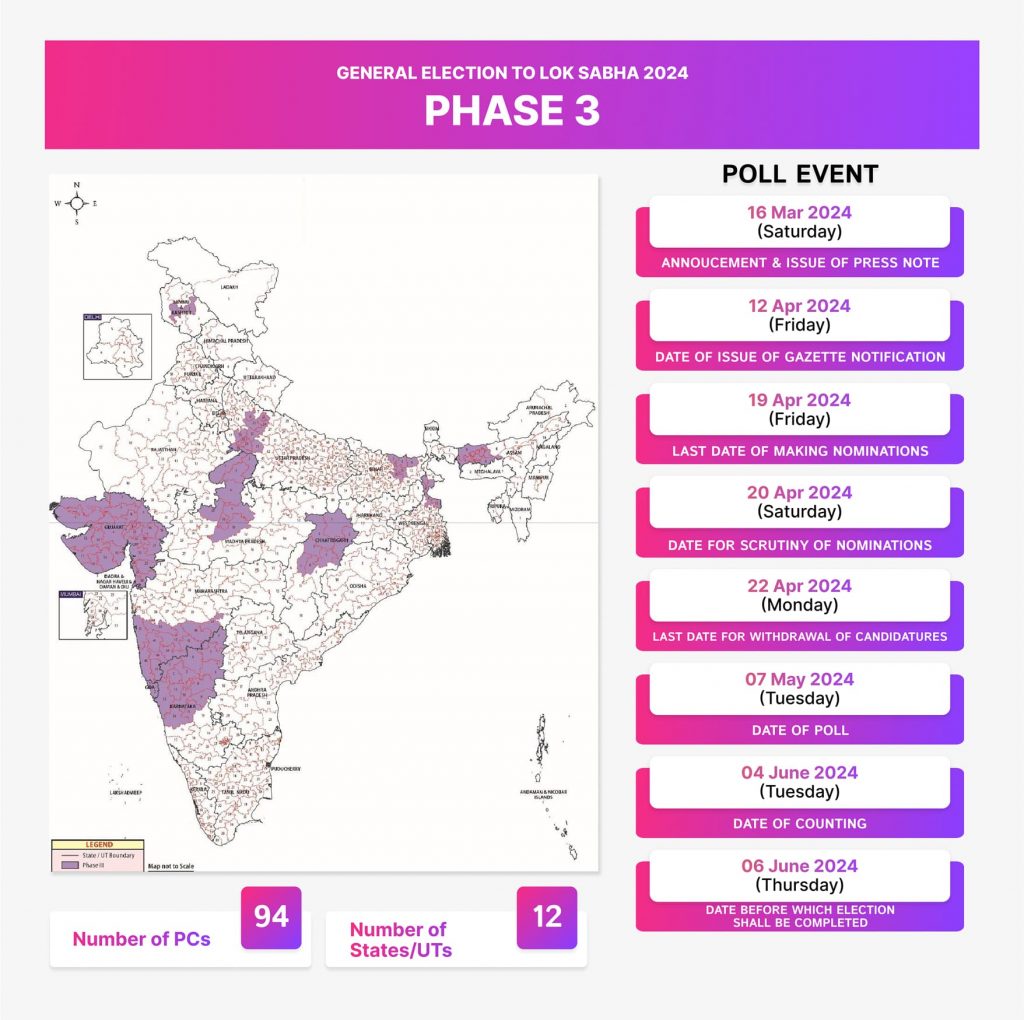
Phase 4
The fourth phase of elections will be held on May 13 since nominations close on April 25. This phase comprises all ten states and union territories.
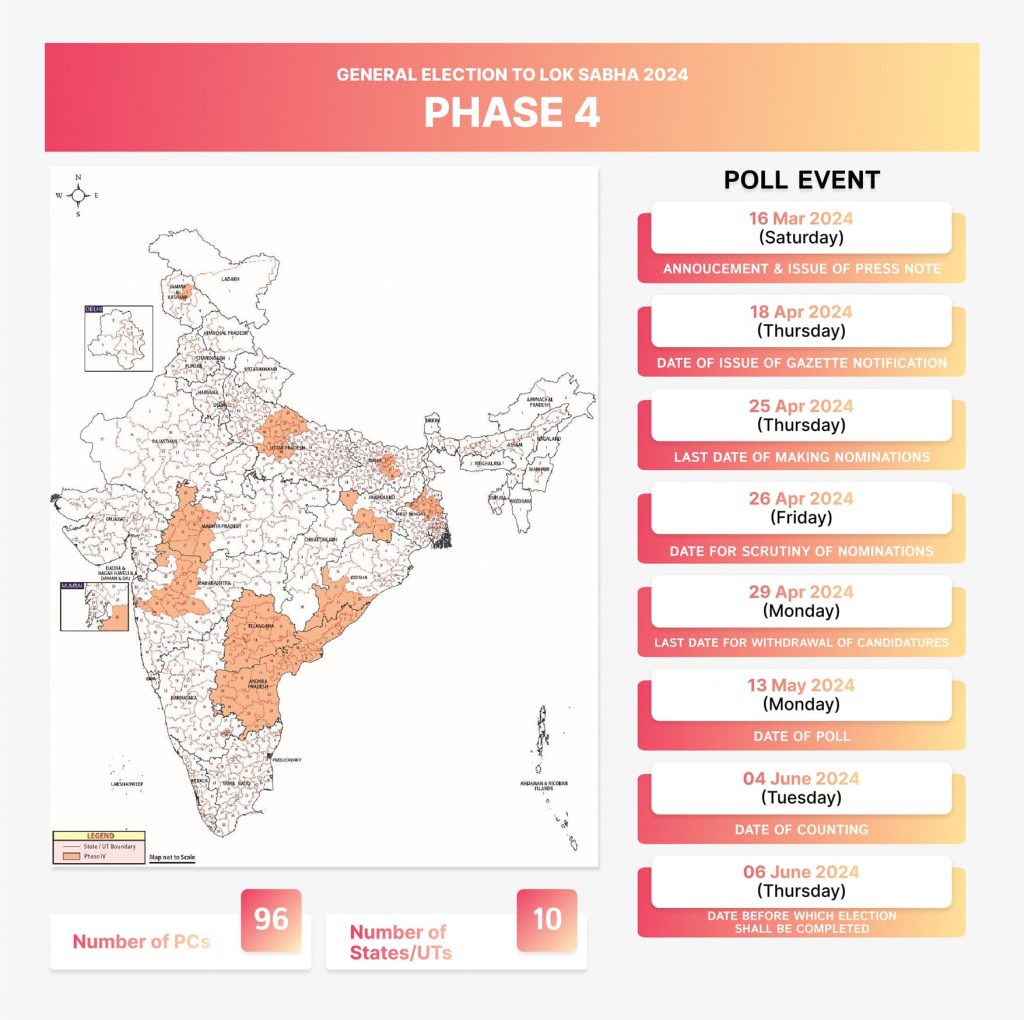
Phase 5
The nominations for this phase will be accepted on May 3. The fifth phase of the Lok Sabha elections in 2024 will be held on May 20, encompassing the eight states and union territories.
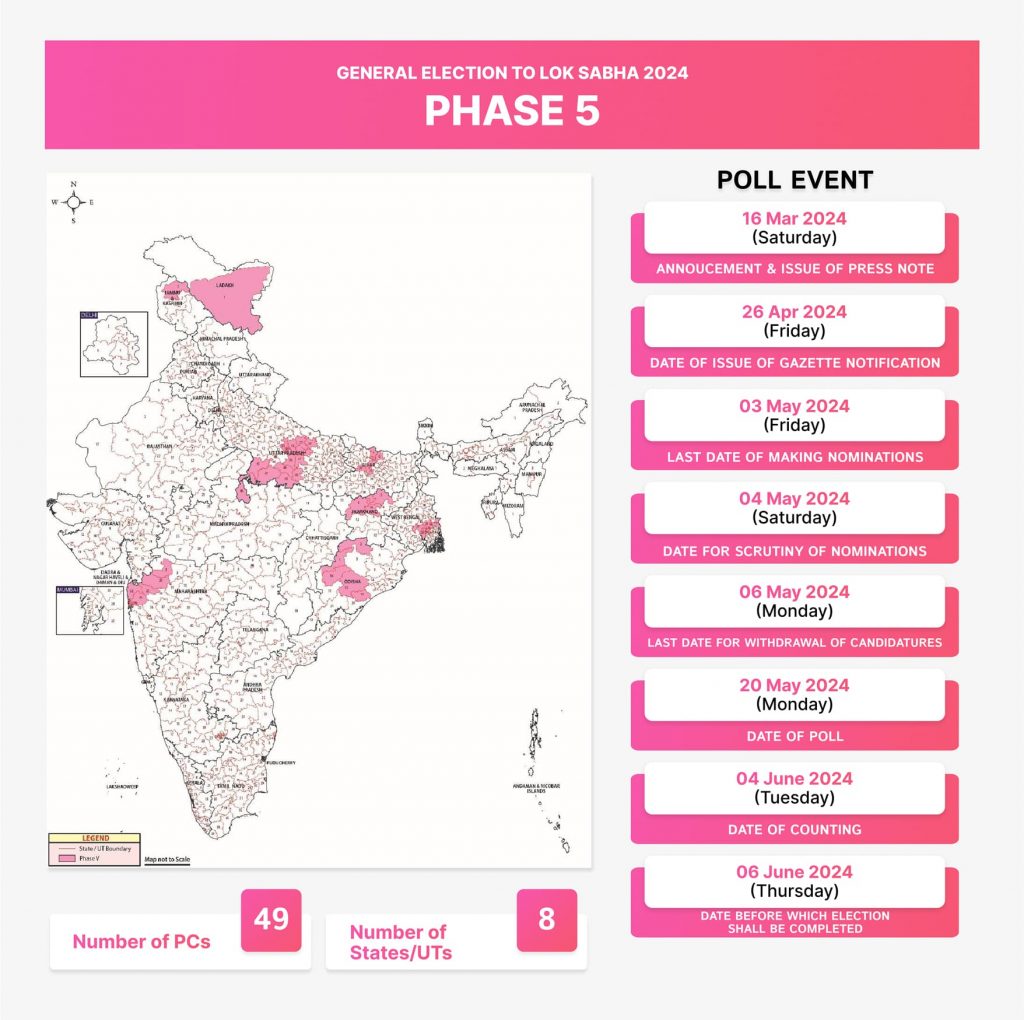
Phase 6
The sixth phase of elections, which comprises Union territories and seven states, will be held on May 25. Nominations for this phase closed on May 6.
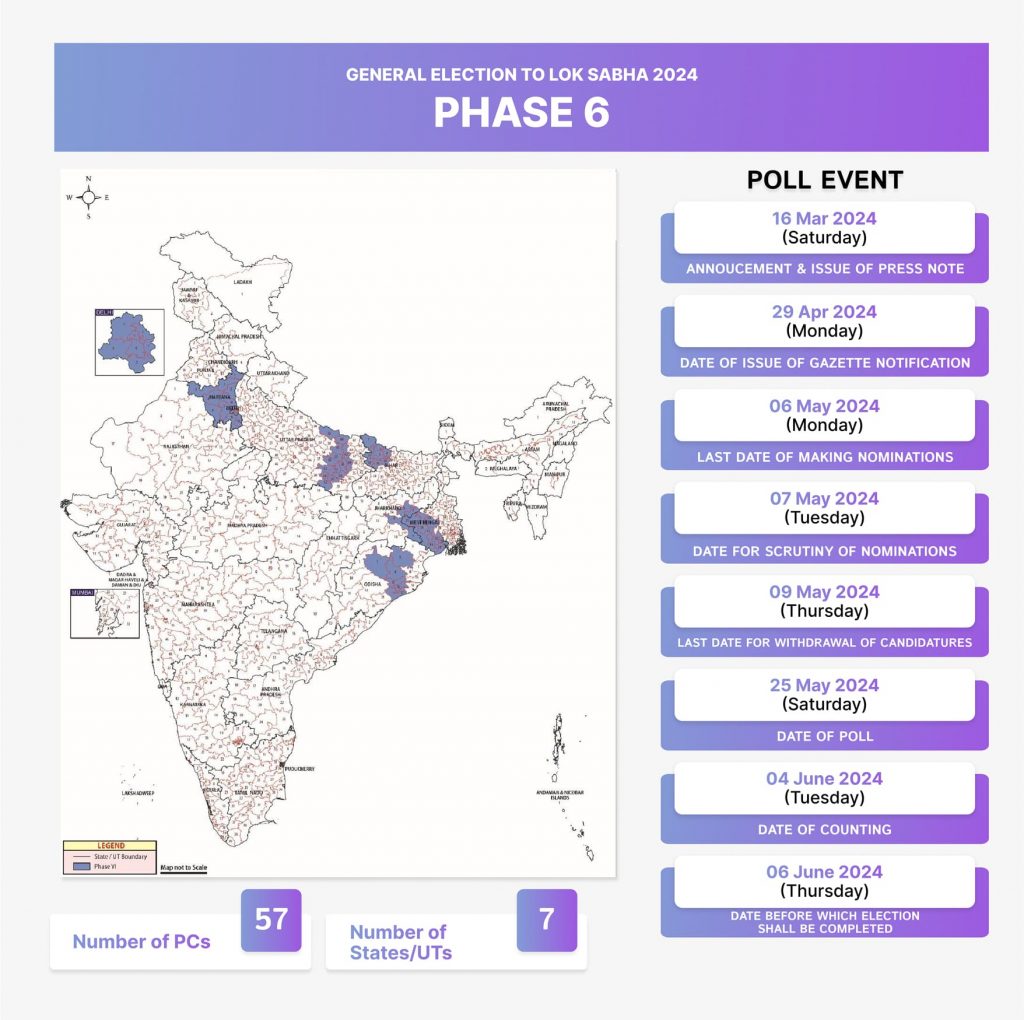
Phase 7
Because of the eight states and the UT nomination deadline of May 14, the seventh phase of elections will be held on June 1.
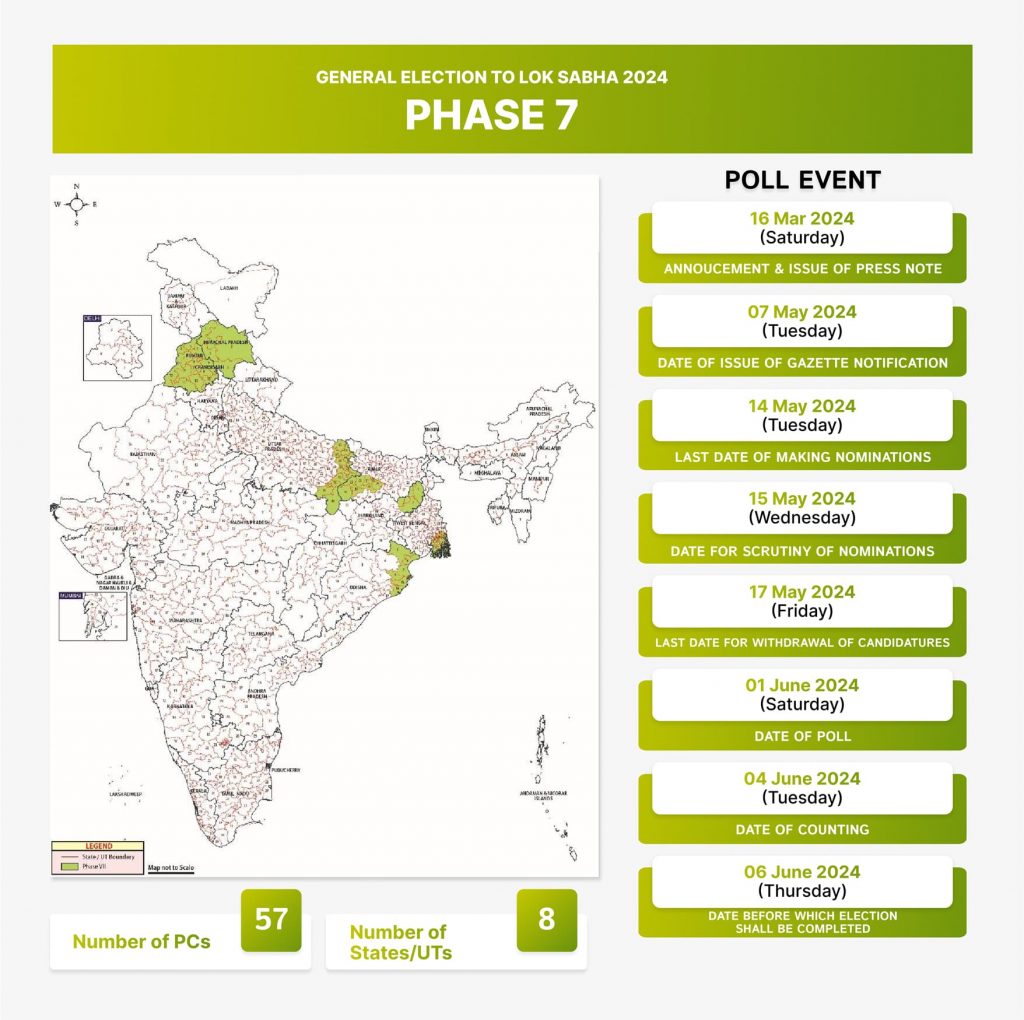
Image Source: https://elections24.eci.gov.in/
Major Lok Sabha Election Parties of 2024
Various regional and national parties will compete in the Lok Sabha elections, resulting in a more diverse political landscape in India. The major parties standing in the Lok Sabha elections in 2024 are listed below.
1. Bharatiya Janata Party (BJP): is the right-wing nationalist party in India. Similarly, it is seen to encourage Hindutva ideological and economic reforms.
2. Indian National Congress (Congress): One of the oldest political parties in India, with a centrist philosophy and a long record of maintaining a stable position in national politics
3. Communist Party of India (CPI): Left-wing birthday party promoting socialist and communist ideology, with emphasis on workers’ rights and social justice
4. Bahujan Samaj Party (BSP): Mayawati Prabhu Das leads this party, which represents the ways of Dalits (earlier known as untouchables) and various underprivileged classes.
5. National People’s Party (NPP): This Party has a strong presence in the northeastern part of India, which focuses on regional development and autonomy.
6. Aam Aadmi Party (AAP): This party comes from an anti-corruption and good governance movement, AAP focuses on education, healthcare, and transparency in government.
Each of these groups brings a unique perspective, priorities, and support base to the states, contributing to the vibrant and dynamic nature of Indian politics. The outcome of the Lok Sabha elections will reflect the aspirations and concerns of the Indian electorate.

